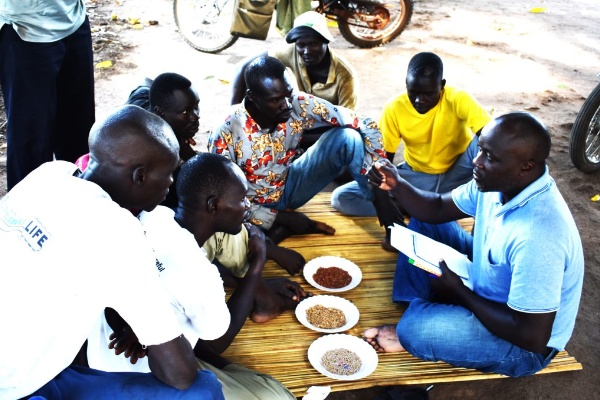Smallholder farmers in northern Uganda and southern South Sudan are set to benefit from a groundbreaking initiative aimed at strengthening agroecosystems, improving food security, and building climate resilience through seed and knowledge sharing.
The project, titled “Embracing South-South Seed and Knowledge Sharing for Resilient Agroecosystems and Improved Livelihoods,” is led by Uganda’s National Agricultural Research Organisation (NARO) in collaboration with regional and international partners.
It seeks to address pressing challenges facing farming communities that have been affected by prolonged conflict, displacement, and worsening climate shocks.
According to NARO, the intervention is timely, given that many communities in the region face food and nutrition insecurity, poor health conditions, and natural resource degradation. These issues are compounded by the erosion of local crop diversity—particularly cereals, legumes, and vegetables—which are central to rural livelihoods.
The initiative will introduce diversity-based strategies to make effective use of plant genetic resources, strengthen local seed systems, and promote sustainable farming practices. Activities include gender-sensitive agrobiodiversity assessments, participatory crop improvement, value chain development, and training in seed management.
Tools such as community seed banks, participatory variety selection, and climate analogue modelling will help farmers adapt to their changing environments.
Dr. Godfrey Asea, Director of Research at NARO, noted that the project represents a shift from humanitarian approaches that often supply non-adapted emergency seeds, to long-term, sustainable solutions. “What these farmers need are resilient seed systems that provide affordable, diverse, and quality planting materials suited to their agroecological conditions. This project is designed to fill that gap,” he said.
The primary beneficiaries are an estimated 15,000 to 18,000 farmers, with women making up nearly 70 percent and youth about 20 percent. A further 100 to 120 crop scientists, extension agents, and technical staff in both Uganda and South Sudan will be trained in conservation and sustainable management of plant genetic resources. Outreach activities are expected to create awareness among at least 50,000 stakeholders.
Expected outcomes include a 10–20 percent increase in the volume of seeds and products from three target crops integrated into local value chains, improved farmer incomes, and stronger policy engagement around food security and climate adaptation.
Community platforms such as seed banks in Uganda and a Seed Hub in South Sudan will be central to ensuring farmers access adapted crop varieties.
The project also leverages farmer-to-farmer knowledge sharing, supported by mass media, local language outreach, and online platforms to ensure wide dissemination of results. Scaling up will be pursued through national programs and institutional partnerships.
Partners in the project include NARO’s Plant Genetic Resources Centre, Volunteer Efforts for Development Concerns (VEDCO), the Directorate of Agricultural Research in South Sudan, the University of Juba, and the Seed and Biodiversity Research Organization.
Internationally, it is supported by the Alliance of Bioversity International and CIAT, and Wageningen University’s Centre for Development Innovation.
By strengthening seed diversity and farmer knowledge, the initiative offers a pathway for vulnerable communities to rebuild their livelihoods and reduce dependence on aid. As Dr. Asea emphasized, “Resilient seed systems are the foundation of resilient communities.”








